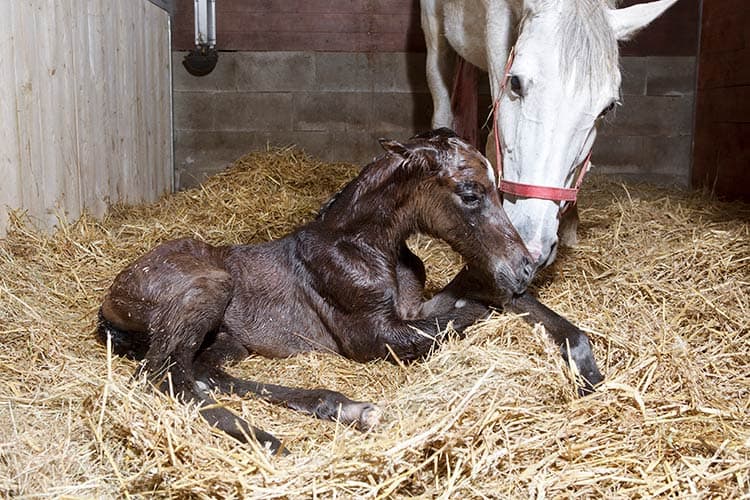Researchers used AI to analyze horse conformation and detected differences between fragile foal syndrome carriers and noncarriers that might have performance implications.

“Conformation is important for soundness, athletic ability, and ultimately the intended use of the horse,” said Rahael. “Horses are generally selected for breeding based on performance traits, which might mean that we are inadvertently breeding more horses that are carriers of the gene, if the carrier state has some performance benefit.”
To perform the study the researchers used artificial intelligence (AI) technology to observe the horses’ conformation and genotyped them to determine whether they were carriers of the FSS variant. They enrolled 35 privately owned sport horses (10 mares and 25 geldings) in the study, with three noncarrier control horses for every carrier (determined through genotyping at the beginning of the study).
To collect their conformation data for the AI system, the researchers jogged each horse on a designated path perpendicular to the camera. They investigated the following parameters for association with the FFS variant:
- Head length.
- Neck length.
- Right forelimb length (from elbow to knee and knee to fetlock).
- Right hind-limb length (from stifle to hock and hock to fetlock).
The researchers analyzed three frames per horse in the same stride stage at the trot and scaled the measurements by head length. “We found that the carriers of FFS had longer neck and hind-limb lengths than those that were noncarriers,” said Rahael.
“In future studies, we will continue to increase the sample size as well as use more than just the limb and neck length for analysis.”
This study confirmed AI’s ability to help quantify aspects of sport horse conformation and detected differences between fragile foal syndrome carriers and noncarriers that might have performance implications. This new technology is a positive starting point for future research on this topic, she added.
Posted by Haylie Kerstetter | Aug 1, 2023
Source : https://thehorse.com/1128050/using-artificial-intelligence-to-predict-fragile-foal-syndrome/






